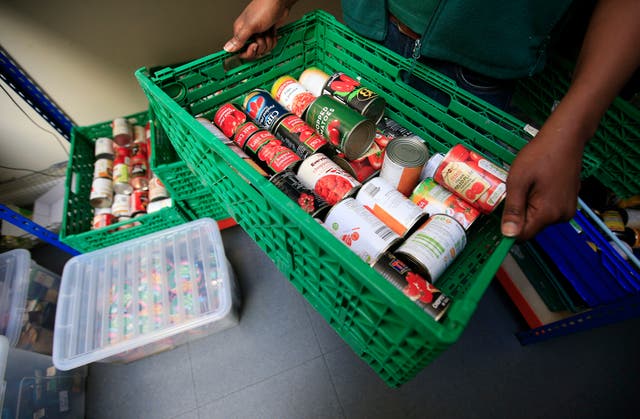
Inserts quotes from Deparment for Work and Pensions in pars 26 to 28.
People’s use of food banks is often more complex and more positive than is presented by politicians and social commentators, a new study suggests.
Food banks have become the subject of heated debate in the UK, and for some they are an indictment of “austerity Britain”, reflecting an increase in the number of people living in extreme poverty.
On the other hand, some people see them as little more than a “free lunch for scroungers”.
The findings of the study suggest that the reasons for people’s use of food banks is often more nuanced than is presented by politicians and commentators.
The study involved in-depth interviews with 25 food bank users in Bristol and found that benefit penalties and precarious employment were both important factors in food bank uptake, but that use was very often more complicated than being an “unmediated response to hunger”.
All interviewees for the study reported significant financial hardship.
Some were in low-paid employment but were facing short-term financial difficulties due to changing jobs, moving home, servicing debt or other unusual costs.
More frequently, participants were benefit claimants whose income had been reduced by delays in processing new or revised claims.
The researchers heard many reports of benefit penalties causing financial hardship, such as the under-occupancy penalty or “bedroom tax”, or cuts in Jobseeker’s Allowance.
Typically, a sudden loss of income, caused by benefit penalties or delays, job losses, or equally sudden unanticipated costs, often relating to housing or heating, created a short-term budgetary crisis, which had caused hardship.
Although, all of the people interviewed faced financial hardship, their use of the food bank was not always caused by hunger or lack of food.
Some people used the food bank to free up income that they would otherwise have needed to spend on food.
Another reason was the supportive and non-judgemental approach adopted by the volunteers who staff them.

This contrasted with the way that many of the users said they had been treated by staff in the state benefits system.
Welfare professionals must follow strict rules about who is entitled to receive what, and they also have to impose penalties on people.
One food bank user said: “I missed an interview by five minutes with the Jobseeker’s Allowance people, and they sanctioned me so I lost two weeks’ money. This is why I’m here today.
“I was just five minutes late, and I phoned them up beforehand and told them as well, but they still didn’t accept it.”
The research suggests the food banks have a more flexible set of rules, which means they can respond to people’s needs promptly, with less bureaucracy or conditions.
Lead author Dr David Wainwright, from the University of Bath, said: “The public debate about food banks has become highly polarised and politicised.
“For some commentators, food banks serve no other purpose than an alarm signalling the hardship caused by austerity measures and benefit penalties – an emblem of ‘Broken Britain’ – for others, they signify the Big Society in action. Our findings suggest a more nuanced reality.
“Certainly, participants involved in our study faced genuine hardship that was often exacerbated by an inflexible and unresponsive benefits regime.
“They benefited from and appreciated the greater flexibility and de-professionalised support that food banks can offer.
“Many of these benefits are only possible because food banks sit outside formal welfare structures.
“A key implication of our study is that food banks should maintain their independence from the state, in order to preserve the benefits of flexibility and informal relationships with users.
“Food banks can never replace statutory welfare benefits and services, but they provide a way of responding to the tension and their expansion perhaps should not be entirely viewed in negative terms.”
A Department for Work and Pensions spokeswoman said: “We have always been clear that the reasons for people using foodbanks are complex.
“Our work coaches listen and provide tailored, personalised support to help people benefit from the independence and security of a job.
“Meanwhile for those who need extra support, we are spending £90 billion a year on working-age benefits, and by 2022 we will be spending £28 billion more on welfare than we do now.”
– The study, Why do people use food banks? A qualitative study of food bank users in an English city, is published in the journal Voluntary Sector Review.


Comments: Our rules
We want our comments to be a lively and valuable part of our community - a place where readers can debate and engage with the most important local issues. The ability to comment on our stories is a privilege, not a right, however, and that privilege may be withdrawn if it is abused or misused.
Please report any comments that break our rules.
Read the rules here